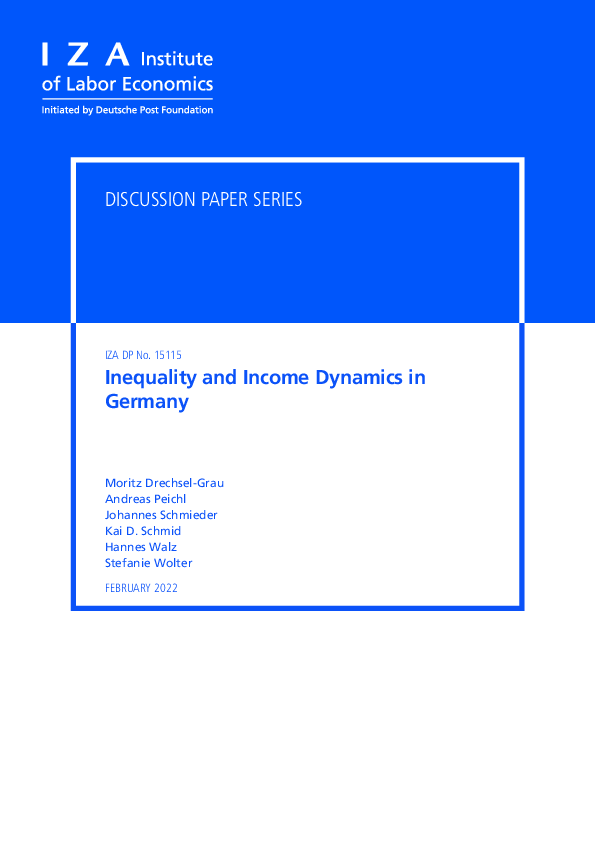Inequality and income dynamics in Germany

Drechsel-Grau, Moritz ; Peichl, Andreas ; Schmieder, Johannes F. ; Schmid, Kai Daniel ; Walz, Hannes ; Wolter, Stefanie
Institute of Labor Economics, Bonn
IZA - Bonn
2022
142 p.
income generating activities ; wage differential ; gender
Discussion Paper
15115
Income distribution
https://www.iza.org/publications/dp/15115/inequality-and-income-dynamics-in-germany
English
Bibliogr.
"We provide a comprehensive analysis of income inequality and income dynamics for Germany over the last two decades. Combining personal income tax and social security data allows us – for the first time – to offer a complete picture of the distribution of annual earnings in Germany. We find that cross-sectional inequality rose until 2009 for men and women. After the Great Recession inequality continued to rise at a slower rate for men and fell slightly for women due to compression at the lower tail. We further document substantial gender differences in average earnings and inequality over the life-cycle. While for men earnings rise and inequality falls as they grow older, many women reduce working hours when starting a family such that average earnings fall and inequality increases. Men's earnings changes are on average smaller than women's but are substantially more affected by the business cycle. During the Great Recession, men's earnings losses become magnified and gains are attenuated. Apart from recession years, earnings changes are significantly right-skewed reflecting the good overall state of the German labor market and increasing labor supply. In the second part of the paper, we study the distribution of total income including incomes of self-employed, business owners, and landlords. We find that total inequality increased significantly more than earnings inequality. Regarding income dynamics, entrepreneurs' income changes are more dispersed, less skewed, less leptokurtic and less dependent on average past income than workers' income changes. Finally, we find that top income earners have become less likely to fall out of the top 1 and 0.1 percent."
Digital
The ETUI is co-funded by the European Union. Views and opinions expressed are however those of the author(s) only and do not necessarily reflect those of the European Union or the ETUI.